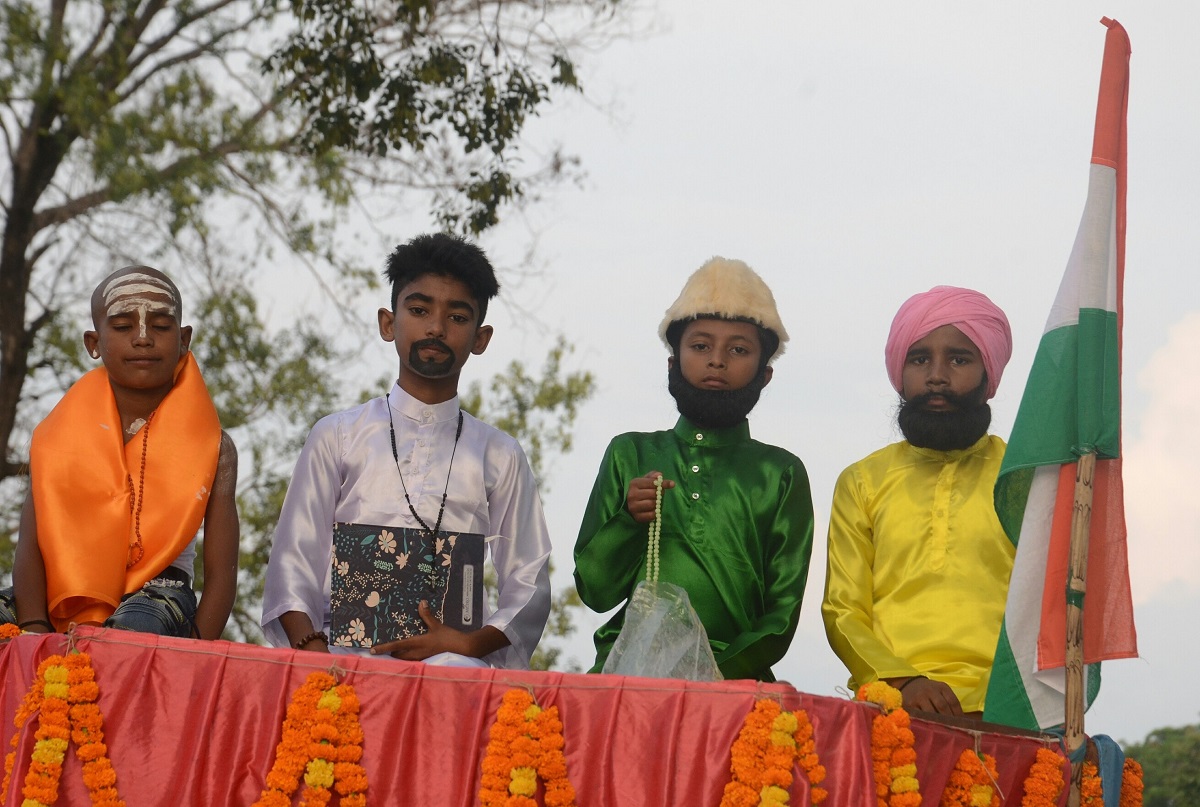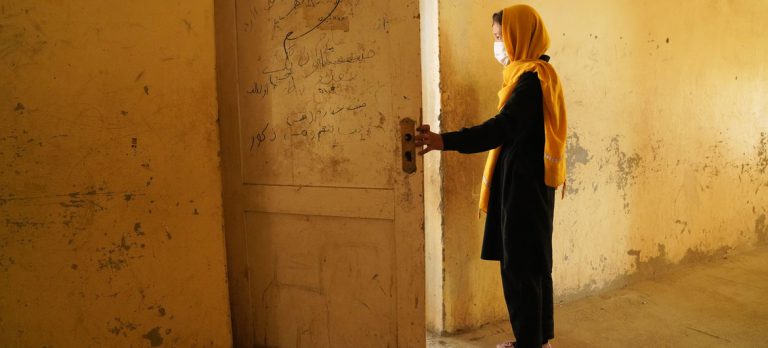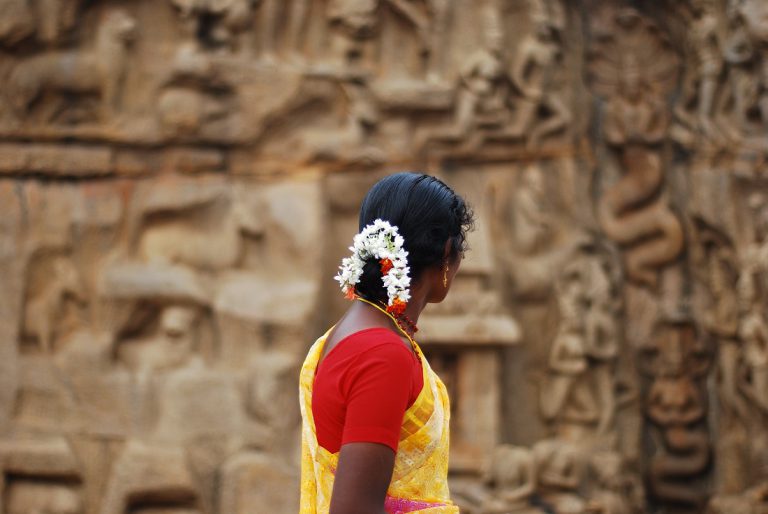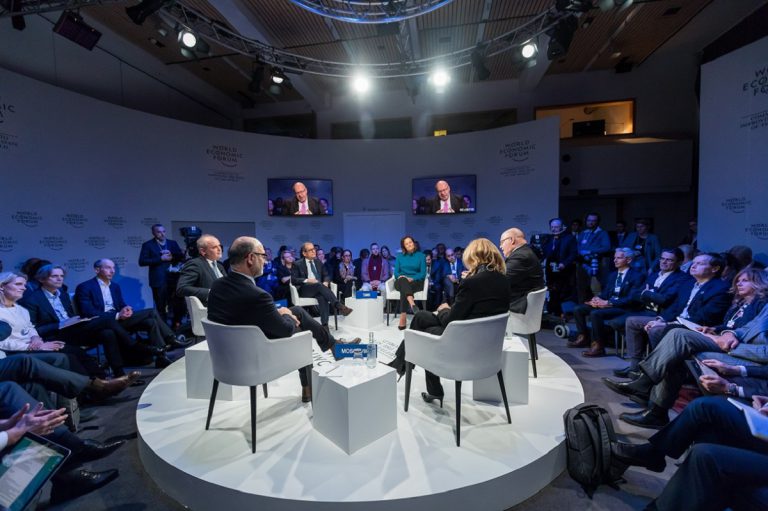Has the Indian secularism lost its face already?
Currently pursuing a Masters degree in Political Science from the University of Calcutta.
The need for literate-ness regarding secularism, and in particular to understand its Indian version, has become urgent since the arrival of the Hindutva-politics and its claim to be the safeguard of secularism in India, dubbing its alternatives as “pseudo-secularism”. The Modi regime is electorally well established, but its roots shake when its grasp on secular grounds is concerned. The minute, Prime Minister Narendra Modi, the poster boy of Hindutva politics, claims that his classification of secularism is ‘India First,’ it might look like an absurd bit of chauvinistic patriotism.
But one needs to realize that there is more to Modi’s statement than his fondness for secularism in a way that one might have to forget the core ideals that build up the concept itself. The idea of secularism, however, is a Western concept, while the West implied secularism to be politics devoid of interferences of the Church; Indian secularism kicked the bucket on an opportunity of the state to mingle with the working of the government as far as one’s religion is concerned. Everyone, who chooses to believe or not believe in God, is bound to enjoy equal rights and status in India.
However, that’s mere in theory, as far as today is concerned. Its practicality in the experimental labs of Indian politics is challenged every day, to the extent that one might feel that the Indian version of secularism is dying miserably.
While the recent protests against the Citizenship Amendment Act and the future planned National Register of Citizens intends to return India its secular color, the ever-increasing majoritarianism in the country is slowly stripping India of the ideal of secularism it proposed to have embedded in its values. The founding fathers of Indian democracy, who were keen upholders of religious pluralism, did not mention the word ‘secular’ in the preamble of the Constitution. The gift of secularism in the preamble was only received by the country three decades later by the Indira Gandhi Government. From thinking that secularism would come naturally to the democratic fabric of India, the need to have it included constitutionally was felt, because of the apparent reason that Indian secularism would be challenged.
But that question that remains is whether Indian secularism has ended up to be disastrous, or whether there exists a need to revert to the true nature of this ideal? The answer to this question can vary; but if one keeps the recent Delhi riots in mind, the beef controversy, the Ram Mandir issue and other such terminal scars in the preview, then one may claim that this version of secularism that divides and not unites seems to justify that Indian secularism is nothing but a failed ideal.
Political exploitation served with a culinary blend of nationalism topped with religion is the view of secularism that has been served to every Indian today. For the sake of argument, one might say that Indian secularism has not failed, not yet, but what one cannot deny is that Indianized Secularism is worsening and is weakening; and will sooner or later be unable to keep the broken pieces of India together.
While on February 25th, 2020, US President Trump paid tribute to the father of our nation, Mahatma Gandhi, at Rajghat, and only kilometers away, rioters punished Muslims and uprooted Hindu households. The blind love for creed and so-called ‘loyalty’ to one’s community made the Delhi Riots look like a mere Hindu Muslim Conflict. Media personalities continuously evoked the grandeur of Trump’s visit, while Muslim children lost their fathers, and vice versa. It is due to these events that India becomes less secular than what it used to be yesterday.
Bias against Muslims is not just evident in the blatant wrongdoing by the police but is even incorporated into the legislation. The Disturbed Areas Act in Gujarat strictly limits property transactions between Hindus and Muslims in metropolitan Gujarat to “maintain demographic equilibrium.” Each attempt made by a Muslim or non-Muslim to participate in a pro-democracy protest is seen with a lens of promoting ‘radical Islam’ instead of a secular nation.
Deliberate underrepresentation of Muslims in the Lok Sabha and dominant political parties like the BJP, even though Indian Muslims are 14.2% of the total population somewhere justifies the fact that today one’s religion does have something to do with his or her opportunities and prospects.
However, it is often implied that to uphold the need for a secular India; one must become ‘pro Muslim’ and ‘anti-Hindu’. Authors like Taslima Nasreen claim that the reason secularism is hitting its rock bottom is that “Most secular people are pro-Muslims and anti-Hindu. They protest against the acts of Hindu fundamentalists and defend the heinous acts of Muslim fundamentalists.” In the attempts to please the Muslim community, politicians give in to hypocrisy and step on secularism with their foot. Nehru worked with Congress to build an India, whose enemy was not a religion but communalism. India wanted to position itself as a secular nation that gave religion a place in a man’s heart, not in his hands.
India’s secularism was seen and is still seen to have the most exceptionally distinct idea of secularism because it didn’t ask man to leave religion at his home or in the masjid or in the mandir, this nation allowed a Muslim man to send his children to a Christian school, this nation shaped a Hindu man to offer his abode to victims of riots, and molded Sikh and Christians to open their places of worship for all, when the catastrophe of the breakdown of India’s secular values takes place. India wants a man to be religious at heart, yet secular in mindset.
But the question is, will that be possible? Or has India’s secularism already met its fate? No. India remained as the holy land were the most destructive of all ideologies met their ends. Raiding Islamic armies from Persia, Anatolia, etc. were defeated and reached its dead-end here in India. Marxism derelict China and Vietnam, but it never gained political prominence in India. Regardless of Christian missionary attempting to spread Christianity in India for several centuries and in the 200-year rule by the Christian British, Christians to date still form only a minor section of the Indian population. Hence If India wills, it can withstand the scars it has faced. It is indeed still possible to foresee India to protect its religious communities and stand up for the secular values it was born with, only by strategically bridging the gaps between the cities and electing leaders who gave secularism its due importance.
Featured Image Credits: Pexels








